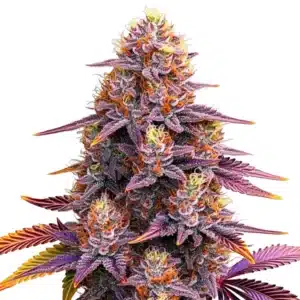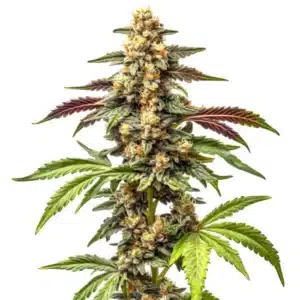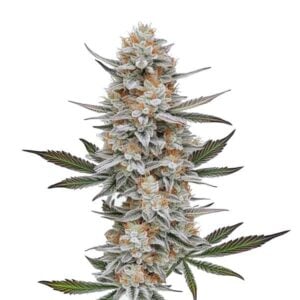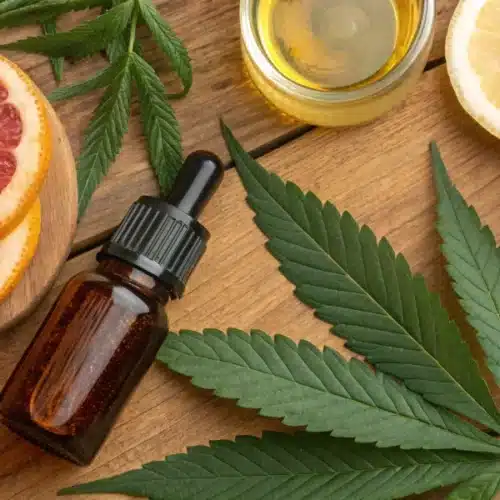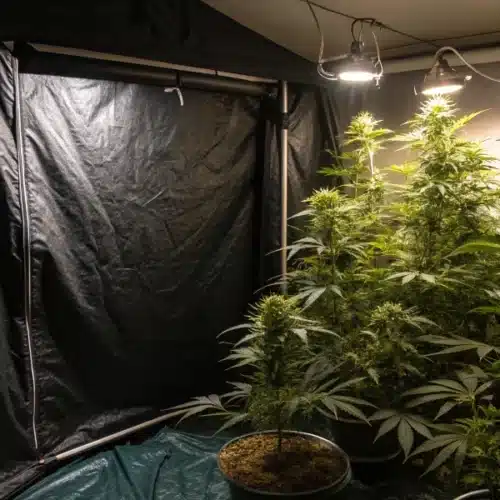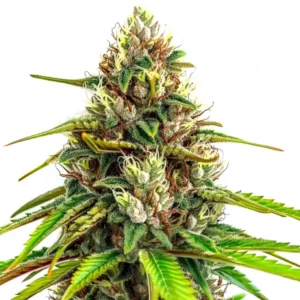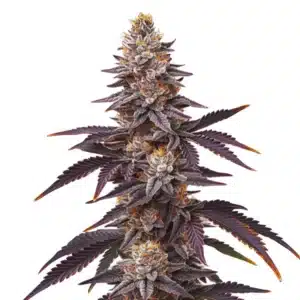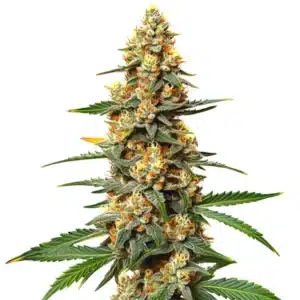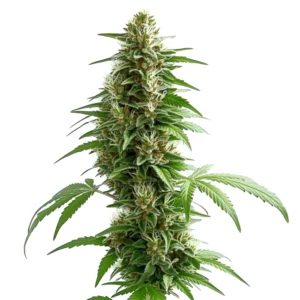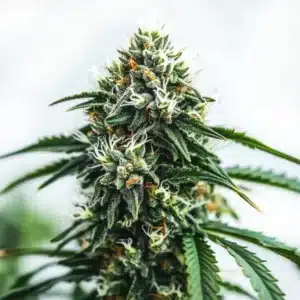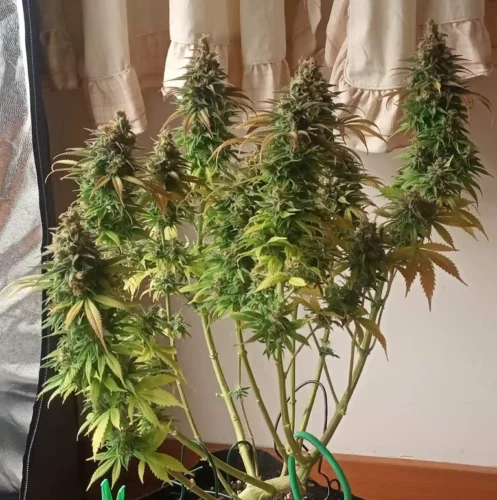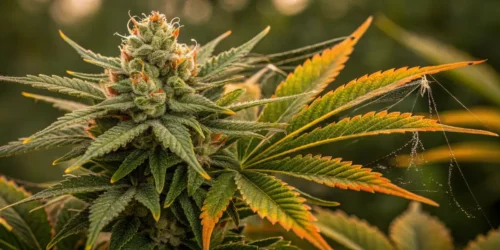Knowing Organic Pesticides for Cannabis
What Are Organic Pesticides for Cannabis?
Organic pesticides for cannabis are derived from natural sources and are utilized to combat pests and diseases that threaten your precious plants. Unlike synthetic chemicals, these solutions are formulated from plant extracts, minerals, or beneficial microorganisms. The goal is to maintain the health of your crop while minimizing environmental impact. By opting for organic pesticides, growers can ensure that their cannabis remains free from harmful residues, making it safer for consumers and the environment.
These organic options can include neem oil, diatomaceous earth, and insecticidal soaps, each targeting specific pests or diseases. The beauty of organic pesticides lies in their dual functionality: they not only protect plants but can also enhance overall plant health. By fostering a balanced ecosystem in your grow environment, you can mitigate pest problems before they escalate.
Benefits of Using Organic Pesticides for Cannabis
Choosing organic pesticides for cannabis offers several compelling advantages. Firstly, they are typically safer for both humans and beneficial insects, including pollinators. This safety aspect is paramount, particularly as the cannabis industry faces increasing scrutiny regarding consumer safety. By using organic solutions, growers can feel confident that they are not contributing to harmful chemical exposure.
Another significant benefit is that organic pesticides often improve soil health. Many organic formulations can enhance microbial activity in the soil, leading to healthier plants. This means not only are you protecting your current crop, but you’re also setting the stage for future growth. Additionally, organic pesticides can be more sustainable over the long term, as they often break down more quickly in the environment compared to their synthetic counterparts.

Promos & Deals
Choosing the Right Organic Pesticides for Cannabis
Key Factors to Consider
Selecting the right organic pesticides for cannabis requires careful consideration of several factors. One of the most critical aspects is identifying the specific pests or diseases affecting your plants. Understanding the life cycles and behaviors of these pests will help you choose the most effective organic solution. For instance, if you are dealing with aphids, an insecticidal soap may be more appropriate than neem oil.
Moreover, consider the stage of growth your cannabis plants are in. Some organic pesticides can be more effective at certain stages, and using them at the wrong time can lead to less-than-optimal results. Additionally, always check for any potential interactions between the pesticide and other treatments you might be using.
Top Organic Pesticide Options
When it comes to organic pesticides for cannabis, a variety of options exist that cater to different needs. Neem oil stands out as one of the most versatile choices, effective against various pests and also providing fungicidal properties. This oil disrupts the life cycle of pests while being safe for beneficial insects when used correctly.
Diatomaceous earth is another popular choice among cannabis growers. This fine powder, made from fossilized algae, acts as a natural abrasive, damaging the exoskeletons of insects like thrips and aphids. It’s essential to reapply after watering or rainfall, as moisture can reduce its effectiveness. Additionally, insecticidal soaps can offer a quick and effective solution for soft-bodied insects, making them a go-to for many growers.
Application Techniques for Organic Pesticides for Cannabis
Best Practices for Spraying
Applying organic pesticides for cannabis requires a strategic approach to ensure effectiveness while minimizing potential harm to your plants. Timing is everything; early morning or late afternoon is generally the best time to spray, as temperatures are cooler, and beneficial insects are less active. This helps to avoid harming pollinators and increases the likelihood that the pesticide will adhere to the target pests.
Moreover, always ensure that you are using a clean spray tank and equipment to avoid cross-contamination. Consider using a fine mist spray to cover the leaves thoroughly without saturating them excessively. This method ensures that you reach both the upper and lower surfaces of the leaves, where pests often reside.
Safe Usage and Timing
Safety should always be a priority when applying organic pesticides for cannabis. Always wear appropriate protective gear, including gloves and masks, to minimize skin and respiratory exposure. Even natural substances can cause allergic reactions or irritations. Read the instructions carefully and follow the manufacturer’s recommendations regarding safe usage and timing. Some organic pesticides may require reapplication every few days, while others may have longer-lasting effects.
Additionally, consider environmental factors such as wind and humidity when planning your application. Wind can cause drift, affecting non-target plants and potentially harming beneficial insects. Humidity can impact how well the pesticide adheres to the plants, so adjust your spraying schedule accordingly.
Integrating Organic Pesticides for Cannabis into Your Cultivation Routine
Combining with Other Organic Methods
The most effective cannabis cultivation strategies often involve integrating organic pesticides with other organic methods. Companion planting, for instance, can create a natural deterrent for pests. Certain plants, like marigolds, can repel harmful insects while attracting beneficial ones. By fostering a diverse plant ecosystem, growers can leverage nature’s defenses alongside organic pesticides for cannabis.
Crop rotation is another essential practice. Changing the planting location of cannabis can disrupt pest life cycles, making it harder for them to establish themselves in your garden. Incorporating organic fertilizers can also enhance plant vigor, making them more resistant to pest attacks. This holistic approach ensures that your plants are not only protected but also thriving.
Maintaining Plant Health
Healthy plants are less susceptible to pest infestations, making it crucial to focus on overall plant health when using organic pesticides for cannabis. Regular monitoring of your plants allows you to catch any signs of distress early, enabling you to respond before a small issue becomes a significant problem. Look for signs of nutrient deficiencies, water stress, or any unusual discoloration that might indicate a pest issue.
Additionally, ensure that your plants are receiving adequate light, water, and nutrients. A well-balanced feeding schedule can strengthen plants, making them more resilient against pests. Incorporating beneficial microorganisms into your soil can also enhance plant health, promoting a robust root system that can withstand various stress factors.

FAQs about Organic Pesticides for Cannabis
What makes organic pesticides effective for cannabis?
Organic pesticides for cannabis are effective due to their natural formulations, which target specific pests while minimizing harm to beneficial insects and the environment. Many organic pesticides disrupt pest life cycles or deter them from feeding on your plants, making them a sustainable choice for growers.
How often should organic pesticides be applied?
The application frequency of organic pesticides for cannabis varies depending on the product and the specific pest being targeted. Generally, it is advisable to monitor your plants regularly and reapply as needed, often every 5 to 14 days, especially during peak pest seasons.
Can organic pesticides replace chemical alternatives?
While organic pesticides can be effective in many situations, they may not always provide the same level of immediate results as chemical alternatives. However, with consistent application and a strong integrated pest management strategy, organic pesticides can effectively manage pest populations while promoting a healthier growing environment.

